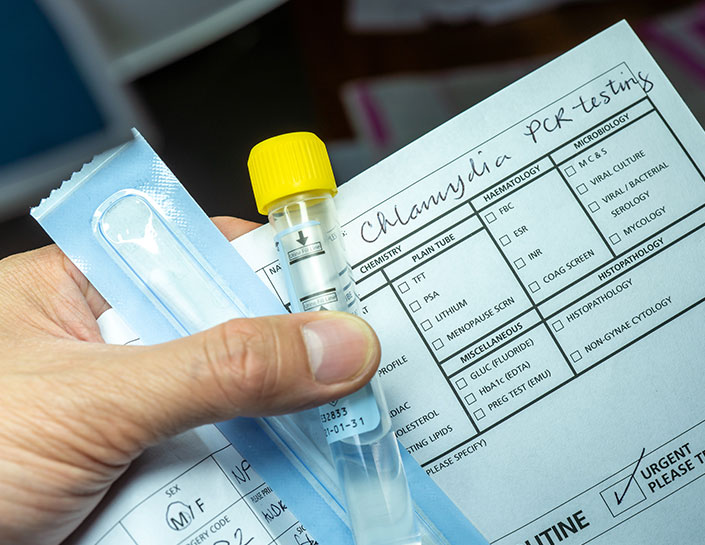Sexually Transmitted Infections
What are STIs (sexually transmitted infections)?
Sexually transmitted infections, or STIs, are caused by organisms like viruses, bacteria, and funguses, and are spread from person to person through sexual contact.
What are a few common STIs?
- Chlamydia
- Genital Herpes
- Genital Warts
- HPV
- Gonorrhea
- Hepatitis B
- Syphilis
- HIV
Other infections that may be spread by sexual contact could include public lice, scabies, or yeast infections

Treatment of STIs
- Sexually transmitted infections are passed from one individual to another during physical contact with skin, genitals, bodily fluids, or mouth during sexual activity.
- Based on the symptoms you may be experiencing, it can be hard to identify what type of infection you may have, so always go get tested if you are experiencing any unusual symptoms.
- To confirm a diagnosis, you can get tested for sexually transmitted infections at a clinic, doctor's office or hospital. They may collect bodily fluids from a swab, perform a pelvic exam or pap test, collect a urine sample, or collect a blood sample. Just like any medical test or procedure, the results of these tests will always be confidential between you and your health care provider. Check out our Services & Resources section to find the closest clinic or hospital to you!

Prevention of STIs
Use protection, such as condoms, as they are a very effective method to reducing your risk of developing an STI. Use a condom every time you engage in sexual activity, including oral sex.
Communicate: It's important to have open and honest conversations with your partners about STIs! Communicate with your partner about how you can both stay safe.
Get Tested: If you want to protect yourself, the best way is to get tested for STIs. Some STIs do not have symptoms, so you can have them and spread them without knowing. If you are aware of your sexual health status, then you can take the proper steps to protect yourself and your partners.
More information about STIs
For more information about sexually transmitted diseases, check out these great resources.

Contraception
What is Contraception?
Contraception, otherwise known as birth control, is a method to help prevent pregnancy. There are many different types and methods of birth control, including:
- Hormonal Birth Control contains hormones such as progestin and estrogen to naturally prevent pregnancy. Common types of hormonal birth control are birth control pills, shots, the patch, or hormonal IUDs.
- Long-acting reversible contraception or (LARC) prevents pregnancy for long periods of time and can be removed or reversed at a later point in time. Common types of LARC includes hormonal or copper IUDs which are implanted into the uterus by a doctor.
- Non-Hormonal Birth Control prevent pregnancy by through a barrier, such as condoms and diaphragms.
- Emergency Contraception helps to prevent pregnancy after unprotected sex or failed birth control. These forms of birth control should be used as a backup method.
For more information about each type of birth control, check out this resource from Health Link BC: https://www.healthlinkbc.ca/health-topics/hw237864